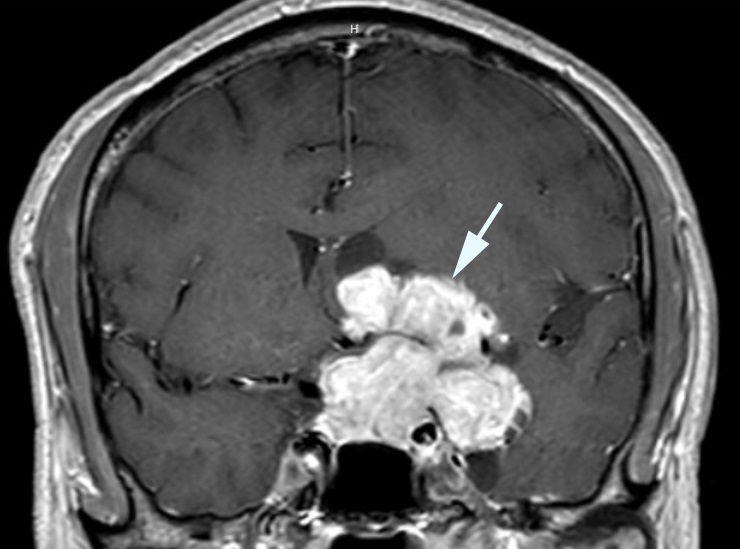( of )
Correct: 0
Incorrect: 0
This 25 year old woman reports blurred vision and that viewed objects appear to oscillate.
This abnormality is caused by:

Chiari malformation is not the right answer; it causes downbeat nystagmus. Multiple sclerosis does cause a pendular nystagmus, but not usually with this seesaw pattern. Superior oblique myokymia causes a nonrhythmic monocular torsional movement, very unlike what you saw here.
This patient is reporting that viewed objects appear to oscillate (“oscillopsia”), a sensation that occurs when the amplitude of the pendular oscillation is high. Superior oblique myokymia generates a momentary illusion of visual blur or diplopia and a sensation that the affected eye is twitching.
There is no effective medical treatment for seesaw nystagmus.
Incorrect
Incorrect
Incorrect